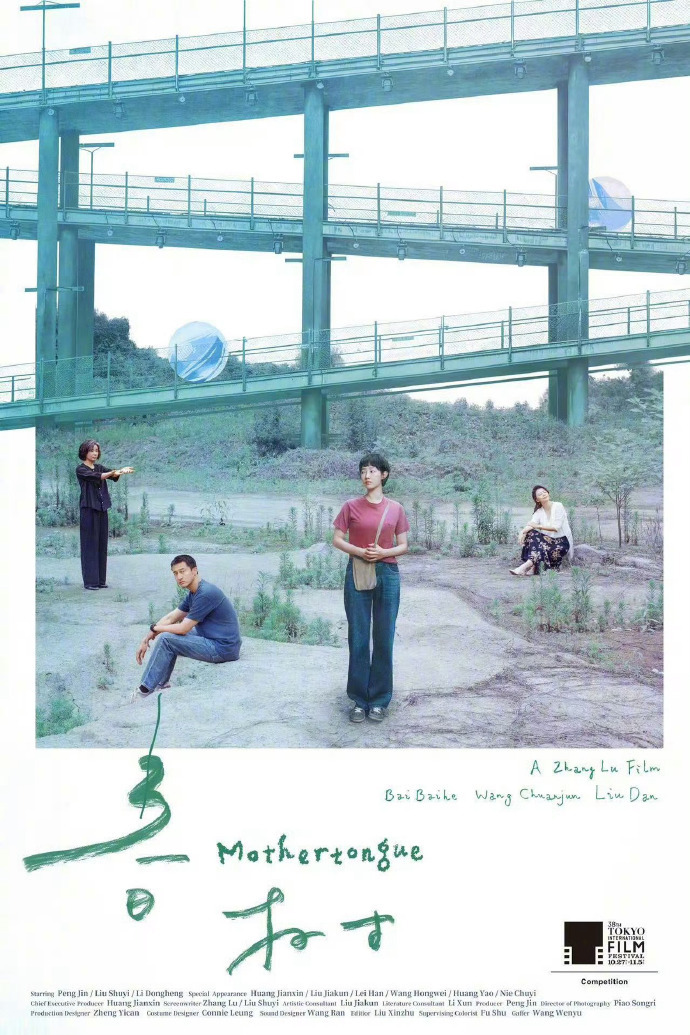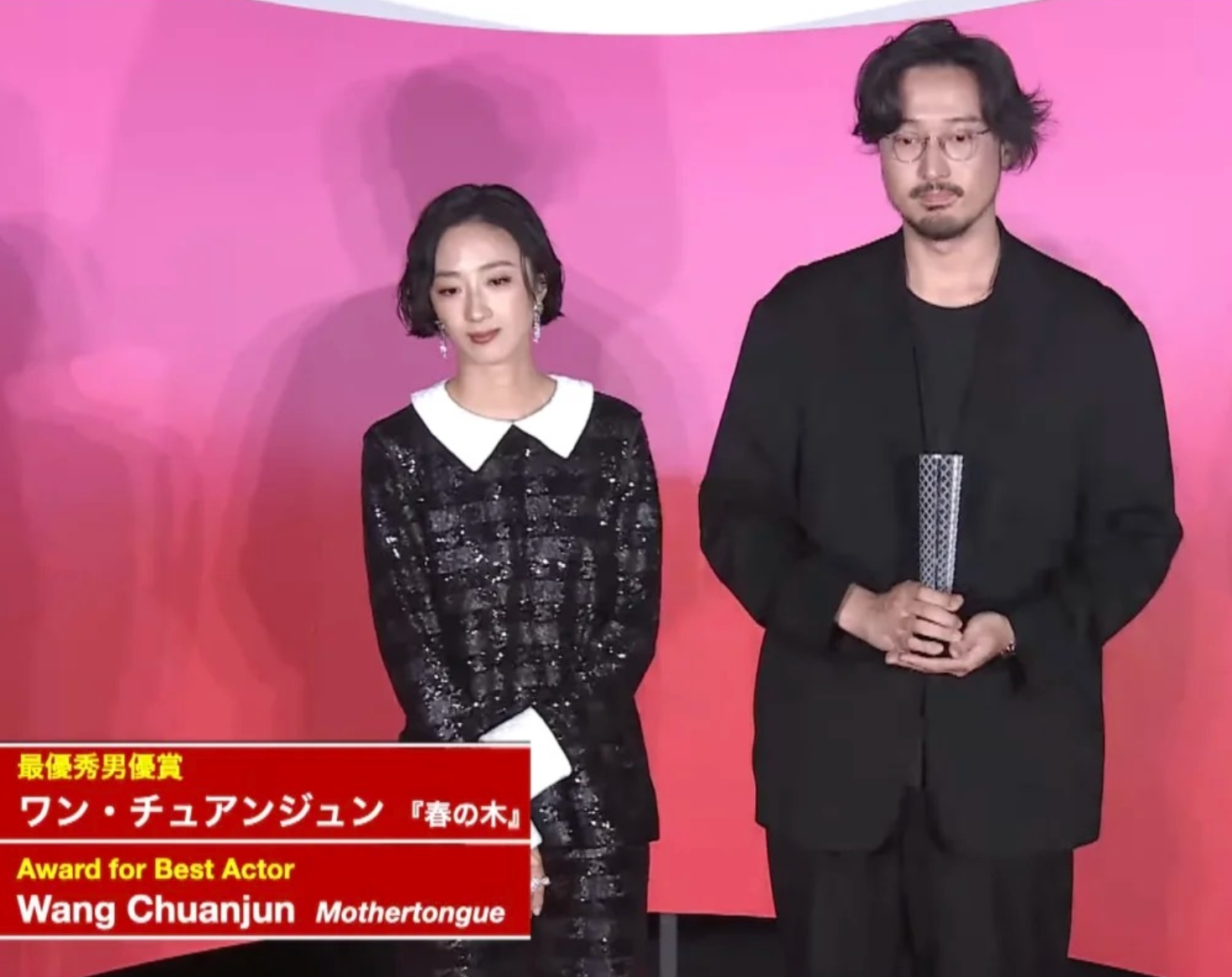
At the recently concluded 38th Tokyo International Film Festival awards ceremony, Wang Chuanjun won the Best Actor award for his outstanding performance in the film "Spring Trees," becoming the focus of attention that day. This award not only highly recognizes his acting skills but also puts to rest the many controversies surrounding the film. Meanwhile, Zhang Lu also won Best Director for "Spring Trees."

Poster for the movie "Spring Tree"
During his acceptance speech at the awards ceremony, Wang Chuanjun said, "I'm someone who feels very unworthy. I often hide in a corner of the team, and I feel fear or anxiety when I'm the center of attention. Many people think this is a sign of arrogance and haughtiness, but it's actually because as I get older, I've become more timid. As I meet more and more people, I have less and less to say. Because I know I still have a long way to go. I never expected such a big award to fall on me, but it was Ms. Bai Baihe and Ms. Liu Dan whose outstanding performances illuminated me from my corner. I think it's not easy to be a light for others, and I thank you for being that light that illuminated me."

Wang Chuanjun won the Best Actor award at the Tokyo International Film Festival for his role in the film "Spring Tree".
Wang Chuanjun also thanked his family, his wife Qi Xi, and his daughter, praising her as "a more outstanding actress than me." He also mentioned his special gratitude for the 120th anniversary of Chinese cinema, saying he was honored to be a part of it, and added, "I will continue to work bravely with this award in my heart."
Directed by Zhang Lu, *Spring Tree* tells the story of Chun Shu (Bai Baihe), an actress who has spent ten years in Beijing, returning to her hometown of Chengdu to search for herself amidst confusion. The arrival of Dong Dong (Wang Chuanjun), a young man from out of town, changes the trajectory of her life. With delicate emotions and a unique perspective, the film showcases the confusion and struggle of urban dwellers in their search for a sense of belonging.
Looking back on Wang Chuanjun's acting career, he first gained recognition for his role as Guan Gu Shenqi in "iPartment," and later successfully transformed his image in "Dying to Survive," playing Lü Shouyi, a patient suffering from chronic myeloid leukemia. To portray this character well, he underwent a rigorous diet, including jumping rope and fasting. During the filming of a scene where he ate steamed buns, he ate 44 buns and 5 large bowls of noodles in one day. For the scene in the hospital bed, he stayed up for two days without sleep, striving to portray the most authentic state of a patient. He successfully shed his comedic image, showcasing his limitless potential as an actor. Later, in "All or Nothing," he challenged himself with the villainous role of Lu Bingkun, vividly portraying the ruthlessness and cunning of a fraud ring leader, demonstrating his increasingly refined and mature acting skills.
The same film can win multiple awards at international film festivals.
The controversy surrounding "Spring Tree" has been raging. Rumors circulated online that the film, a female-centric movie, featured Wang Chuanjun with less screen time than supporting actress Liu Dan, yet he was rumored to win the Best Actor award. The film's lead actress, Bai Baihe, posted a Weibo message with a Chinese IP address, saying "It can be done like this," leading to widespread speculation that she was dissatisfied with the award distribution.

Screenshot of Bai Baihe's Weibo post
As public opinion intensified, more industry insiders publicly clarified on social media that there is no "unwritten rule" at international film festivals that a single film cannot win multiple awards. For example, in 2010, *Buddha Mountain* won Best Actress and Best Artistic Contribution at the Tokyo International Film Festival, and Wang Jingchun and Yong Mei both won Best Actor and Best Actress at the Berlin International Film Festival for *So Long, My Son*. Furthermore, there are precedents of international film festivals even producing "double winners" or "triple winners" for the same award if the actors' performances are outstanding enough.
Even more interestingly, this year's Tokyo International Film Festival saw two actresses simultaneously win Best Actress: Momoko Fukuchi and Naomi Kawase, both for their roles in "The Other Side of the Star." Kawase, known for her directing career and numerous awards at international film festivals such as Cannes and Locarno, considers this win a breakthrough achievement for her as an actress. The Best Director award was also shared by Zhang Lu and Alessio Rigo Deligi and Matteo Zopis, directors of "The Other Side?".
It's worth mentioning that director Zhang Lu just won Best Film at this year's Busan International Film Festival for "The Twilight of Luo Mu," which also stars Bai Baihe and Liu Dan. During the screening of "Spring Tree" at this year's Tokyo International Film Festival, Zhang Lu stated that film festivals are platforms to encourage filmmakers, and being nominated indicates that the film's vision aligns with the festival's. He emphasized that winning an award is not the sole criterion for judging a film's quality, and creators should remain true to themselves.

Actors Liu Dan, Wang Chuanjun, and Bai Baihe attended a film promotion event.


